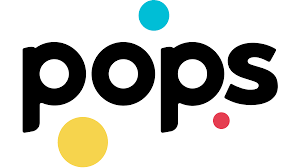Alumni of the Minnesota Angel Tax Credit Program (ATCP) are working to fight COVID-19 in novel and critical ways. Here are some of the ways alumni of the program are pivoting their resources to combat COVID-19:

The CDC is encouraging the expanded use of telehealth tools in response to the COVID-19 pandemic and Zipnosis, a Minneapolis-based digital health company, is helping providers respond to the demand for virtual care. Their virtual visit tool helps keep potentially vulnerable patients out of clinic and saved providers over 70,000 hours in clinic time in March alone, allowing them to focus on the patients that need in-person care. In the first 11 days the COVID-19 pandemic was in the United States, the company saw a 3,600% increase in utilization across their platform, making them one of the largest telehealth companies in the United States.

Datica partnered with Zipnosis in response to the surge in demand for their virtual care solution, allowing providers using the tool to screen and treat over 167,000 patients in less than a week. Datica worked day and night in collaboration with the Zipnosis team to triple Zipnosis’ infrastructure, ensuring their fellow Angel Tax Credit recipient could deliver the care the required despite the crushing demand.

Clinician Nexus, a 2017 beneficiary of the ATCP, teamed up with MN CovidSitters to support frontline healthcare workers in Minnesota who need help managing their household while serving patients. Clinician Nexus developed a modified workflow to power the MN CovidSitters’ application verification and matching process through their platform. This innovative collaboration relieves the stress of frontline workers, preventing burnout and allowing them to focus on the critical tasks at hand.

POPs Diabetes Care now offers their virtual coach, normally available only to owners of the POPs system, free to every patient with diabetes during the COVID-19 crisis. Diabetes is recognized as one of the underlying conditions most likely to cause complications during treatment for COVID-19, so helping these patients stay healthy at home is particularly important.

LogicStream Health, another 2017 beneficiary of the ATCP, is directing their resources to address drug supply shortages resulting from COVID-19. The Drug Shortage App, which LogicStream developed to offer early warning of drug shortages to hospitals, is now available free of charge as potential disruptions in the supply of drugs loom due to COVID-19.
These companies and other ATCP alumni were positioned in unique ways when the pandemic hit, yet each saw the need to step up and did not hesitate to do so. Without the support of legislators, they may never have had the chance to contribute to this fight so effectively.
Last legislative session, the ATCP was reinstated with $10 million in funding for each of Tax Years 2019 and 2021 (with no funding for 2020). The demand for the program was immediately evident, as available credits for 2019 were exhausted in just over five months. Without any funding for the ATCP in 2020, however, innovative entrepreneurs throughout the state will be without a valuable tool for growing and expanding their businesses.
The innovation that happens here improves the lives of patients in Minnesota. We are the birthplace of implantable medical technology, collaborative care delivery, and innovative health plan models. Our early stage companies are at the forefront of healthcare innovation, deploying their resources to fight the novel coronavirus. Support for programs like the Angel Tax Credit Program is key to keeping Minnesota a destination for emerging healthcare solutions, including those that are helping to combat COVID-19.
